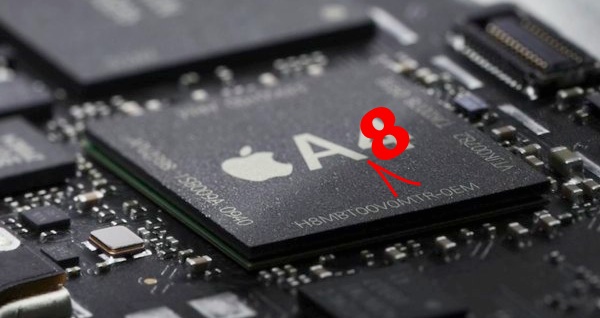
The rumor has arrived courtesy of Taiwan's Kinsus, an industrial-scale silicon substrate supplier, which is saying it's delivering between 30% and 40% of the raw materials that Qualcomm, the famous cellphone chip-maker, will use to make chips for the iPhone 5. Kinsus is reported to be delivering its part of the deal soon, by March certainly, and this suggests a Spring delivery date (at the soonest) for the 2011 iteration of the iPhone.
Meanwhile, the same sources are saying the CPU tech inside the iPhone 5 and iPad 2 will be a "new A8 application processor," also built on silicon supplied by Kinsus. This has prompted speculation that Apple's next CPU advance from its current A4 chip will incorporate dual cores--twice an A4, you see?--and thus could be based on the more advanced ARM Cortex A9 architecture.
Speculation that Qualcomm could be taking a big slice of Apple's business have been arounddebate again, because Qualcomm is practically synonymous with CDMA tech, supplying the greater majority of cellular phone chips for phones compatible with Verizon's network. But we're slightly skeptical about the claims that Qualcomm will land sole control of the wireless tech inside the iPhone 5, given the long-standing and (seemingly) successful relationship Apple's had with Infineon until now. Qualcomm does make a dual CDMA/GSM chipset, and Apple could select a variant of this for the iPhone 5 (a theory that's supported by the leaked iPhone 5 chassis last week, which looks like the redesigned antenna-version of the iPhone for Verizon, but which includes a SIM slot)...but we suspect that Qualcomm's tech will only be slipped into Verizon hardware, given the global prevalence of GSM. for a while. The recent reveal of the Verizon iPhone has sparked the
The news about the A8 is more interesting: We know the secret jewel in the iPad was the Apple A4 silicon, since Apple then rolled it out into the iPhone, iPod Touch and Apple TV--and we certainly expect Apple to include more advanced silicon in its upcoming devices to deliver more processor power. But the A4 is based on ARM Cortex A8 architecture, and this is the chief worry about the CPU news. Is it a muddled message, or is Apple's next chip definitely called the A8, but uses more advanced Cortex A9 chip designs in order to remain ahead of the competition? We suspect Apple will choose an A9 reference, and possibly a clock speed of 1.2GHz--faster than iPad 1, and consistent with some recent competitor phone tech--and we'll probably find out sooner rather than later, as the iPad 2 is likely to get its coming out party in just a few weeks.
Comments
Post a Comment